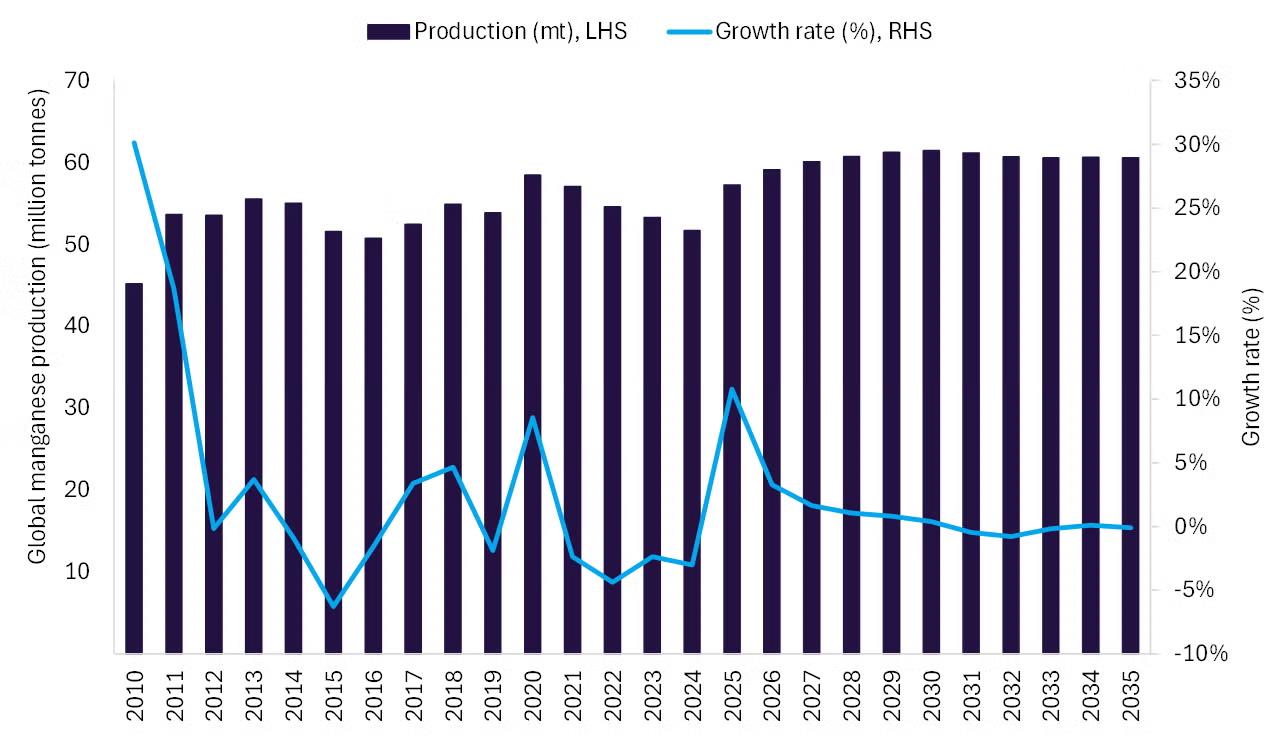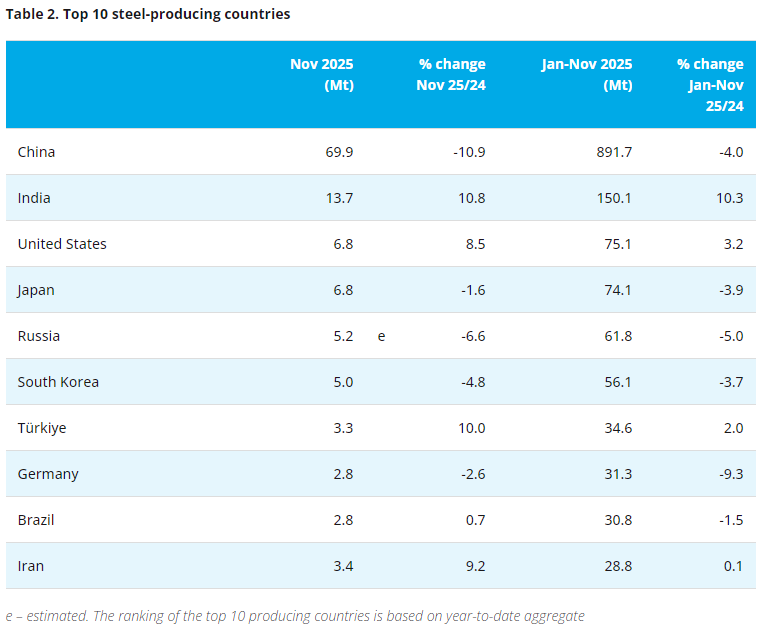[Ferro-Alloys.com] Gabon – moving away from oil to a diversified mining sector
Gabon has joined the moved from dependency depleting oil reserves and has started exploring and developing its largely unknown, unexplored and under-developed mineral mining industry.
Gabon’s coastal region stretches around 885 kilometres along the Atlantic Ocean and is recognised as one of the world’s most forested countries, with 85% of its land area covered by tropical rainforests.. The country is divided into nine provinces, each with a distinct geography and economic activities. Libreville is the capital and largest city on the north shore of the Gabon Estuary, near the Gulf of Guinea, with a population estimated to be around 800 000. The country has been under military rule since election results of August 2023 were annulled and the subsequent coup, where General Brice Oligui Nguema assumed the role of transitional president deposing former president Ali Bongo Ondimba.
Gabon’s economy is projected to experience moderate growth in coming years, with the International Monetary Fund (IMF) estimating a real GDP growth rate of 2.63% in 2025, tapering slightly to 2.56% in 2026. However, the country faces challenges with its fiscal position, with the IMF estimating that general government gross debt will rise significantly from 79.95% of GDP in 2025 to 85.43% the following year.
Gabon’s mining sector currently contributes around 6% of GDP, but government aims to increase the mining sector’s contribution to 25% by 2030. The government’s Transformation Acceleration Plan (PAT) for 2021-2023 identified mining as one of four key growth sectors. The PAT initiative aims to reduce the oil sector’s share of GDP from 38.5% in 2020 to less than 20% by 2025, while increasing the share of contribution by mining in parallel.
However, infrastructure deficiencies continue to hinder the mining sector’s development. The Trans-Gabon Railway, critical for transporting manganese to the port of Owendo, frequently faces capacity constraints and maintenance issues. Ongoing challenges with reliable and accessible power supply in mining hubs, require mining operators to continue to use costly off-grid solutions, impacting operational efficiency. The government has prioritised infrastructure development, but progress has been slow.
Regulatory issues in the post-coup Gabon have put a damper on attracting foreign investment and hopes of boosting state revenues. The main concerns revolve around stricter local content requirements, higher royalties and restrictions on foreign ownership. The regulations are intended to retain a higher percentage of value within the country but are considered unclear and overly burdensome on exploration and mining operators.
Geology and mining
Gabon is located at the northwestern margin of the Congo Craton. Three major stratigraphic units can be distinguished, with the Archean basement and the Proterozoic sediments covering about 75% of the country. The Phanerozoic Cretaceous sedimentary cover, accounts for the remaining 25%. Scattered greenstone belts across the country are associated with gold and base metal deposits.
Gabon’s economy relies largely on its oil and gas industry, which will likely remain dominant for some years to come. The Atlantic basin extends offshore along the coast to the island of Sao Tomé. The basin has favourable trapping structures that include a series of faults and salt diapirs. Gabon’s largest oilfield, the Rabi-Kounga Field, onshore about 100km north of Gamba, was discovered in 1985 and began production in 1989. Increased drilling and seismic activity will likely lead to further discoveries and increased petroleum production for the near future. Oil accounts for around 80% of export earnings.
The mining sector is also influenced by manganese and uranium mining operations. Manganese deposits occur on residual Lower Proterozoic formations near Mounana. It is indicated that the country contains 25% of the world’s known manganese reserves amounting to around 150 million tonnes, making it the second-largest reserve base globally after South Africa’s Kalahari Manganese Field (KMF). The Moanda mine, operated by Comilog, a subsidiary of Eramet, is located in Haut-Ogooué Province in the southeast. It produced 7.5 million tonnes of high-grade (up to 50%) manganese ore in 2022. This makes Gabon a potential major player in the future battery minerals industry. Uranium deposits, located in the Mounana area,are hosted in sandstones of the western margin of the continental Franceville Basin.
Gold is mainly mined by artisanal miners. These operations are dotted along numerous rivers located on top of metamorphosed Precambrian rocks. Almost all gold produced in Gabon comes from alluvial deposits. There has been notable exploration taking place in the last couple years to delineate the vein-hosted gold in Greenstone outcrops. In 2023, Gabon officially opened its first gold refinery, although gold output remains low at around 2t of gold bars produced annually. Gold deposits are indicated to be around 40 tonnes of resource in Ngounié Province around the Eteke region in the south of the country.
The discovery of diamonds have been widespread in Gabon – mined in the Makongonio area in the south and to a lesser extent in the Mitzic region in the north of the country.
Notable potential iron-ore areas have been identified in the Makokou-Mékambo region in the north of the country in the form of alteration of itabirites (BIF). The Belinga iron ore deposit in Ogooué-Ivindo Province in the country’s northeast, potentially has over 1 billion tonnes of high-grade iron ore, with an iron concentration exceeding 60%. In February 2023, Fortescue Metals Group (FMG), initiated the deposit’s development with an initial investment of over USD200-million for early-stage activities, including exploration and infrastructure development. Despite ongoing challenges, including strained relations with the new military government following the August 2023 coup, the company indicated that it remains committed to Belinga, viewing it as a long-term investment with the potential to substantially contribute to the economy. In October 2024, Genmin raised USD6.8-million to fund the development of the Baniaka iron project in southeastern Gabon. The pre-feasibility study (PFS) undertaken during 2022 indicated that an investment of approximately USD200-million would be needed to potentially start production by H2 of 2025.
The country also hosts around 61 000 tonnes of rare earth (RE) reserves, accounting for around 4% of the global total. The Mabounié polymetallic deposit in Moyen-Ogooué Province in the country’s centre-west is particularly noteworthy. It contains niobium (1.2%), tantalum (0.03%), RE elements (1.4%) and uranium (0.03%).
Sub-economical deposits of baryte have been identified at Dourekiki, west of Tchibanga, and a phosphate/niobium deposit at Mabounié, east of Lambaréné. There are indices for lead, zinc, tantalite, potash, dolomitic limestone, talc and ornamental rocks, however no follow-up work has been undertaken to better define these deposits to date.
Domestic beneficiation
The country is intensifying efforts to refine and process its minerals, reducing reliance on income purely from the export of raw ore. In June 2023, the country inaugurated its first gold refinery, the Gabonese Gold Refinery (ROG), in the Nkok Special Economic Zone near Libreville. The ROG facility is a joint venture between the state-owned Equatorial Mining Company and Alpha Centauri Mining (ACM). The facility can process 7 to10 tonnes of gold annually.
Gabon has advanced with the development of the Moanda Metallurgical Complex (CMM), which will process high-grade manganese into silico-manganese and manganese metal for export. The facility is operated by Comilog and powered by the Grand Poubara Hydropower Station. This builds on Nouvelle Gabon Mining (NGM), operating in Franceville and Okondja, which began production in 2017 with an annual capacity of 2 million tonnes of manganese ore and is developing a greenfield project at Mounana to produce ferroalloys, further increasing the country’s processing capabilities.
Exploration
Menar signed a memorandum of agreement with the Gabonese government in March 2024 to explore for manganese and iron ore. ACM signed agreements with the Gabonese government to expand gold exploration, exploitation and refining. ACM’s operations began operating in the country in 2016 and have been producing approximately 100 kilograms of gold per month since September 2021.
Mining legislation
Gabon’s mining sector operates under a comprehensive legal framework designed to regulate and promote the industry, ensuring sustainability and economic benefits. The Mining Code, Law No.037/2018 of 23 January 2019, replaced the previous 2000 Mining Code. The modernised legislation is aimed at attracting foreign investment, increase transparency, and integrating sustainable practices into mining activities. The provisions of the Mining Code detailedin Decree No. 0011/PR/MMIM of 11 February 2019 outlines procedures for permit applications, tax and royalty structures, environmental assessments and artisanal mining activities.
Mining projects and operations must comply with the country’s environmental protection laws, particularly Law No. 003/2007 on Environmental Protection. The law mandates preparing environmental and social impact assessments (ESIAs) and environmental management plans (EMPs) for all mining operations, ensuring that environmental and social considerations are integral to project planning and execution.
Investment in the mining sector is governed by the Investment Charter of Gabon, established under Law No. 15/1998. This law provides incentives, including tax holidays and customs exemptions to encourage local and foreign investments. The Labour Code, introduced to increase participation and inclusion of Gabonese nationals into the mining sector is guided by Law No. 3/94 of 21 November 1994, aims to regulate employment relations in mining operations, emphasising the recruitment and training of Gabonese nationals.
The Law on Public-Private Partnerships, enacted as Law No. 045/2010, supports the development of mining-related infrastructure projects and is aimed at developing domestic beneficiation. It facilitates collaboration between the government and private entities to ensure the construction of essential infrastructure, such as transportation and energy facilities, crucial for large-scale mining activities.
Conclusion
An increase in foreign investments to develop the country’s mineral wealth, coupled with the government’s commitment to supporting the mining sector, has resulted in the development of new mining projects and operations along with the development of infrastructure – moving toward the goal of domestic beneficiation.
The impact of political uncertainties following the 2023 coup continue to pose challenges, but the transitional government has an opportunity to stabilise the industry and build investor confidence. A key factor will be addressing regulatory and infrastructure constraints, while ensuring steady progress on flagship projects. Gabon can ensure its mining sector will have a more significant role in economic diversification, as the country moves away from its dependence on oil.
- [Editor:tianyawei]



 Save
Save Print
Print Daily News
Daily News Research
Research Magazine
Magazine Company Database
Company Database Customized Database
Customized Database Conferences
Conferences Advertisement
Advertisement Trade
Trade












Tell Us What You Think